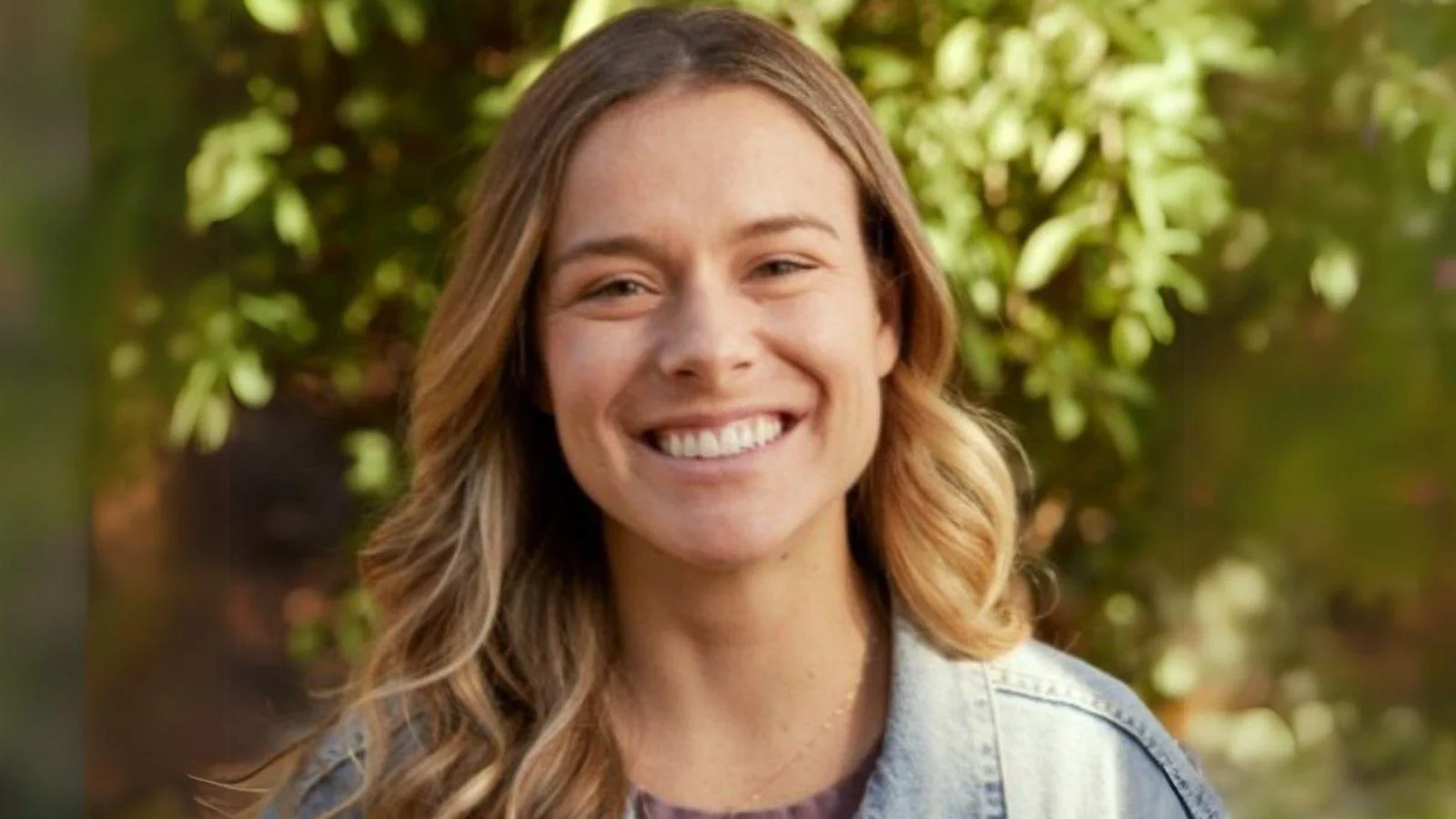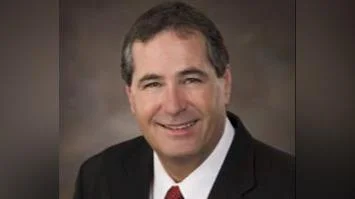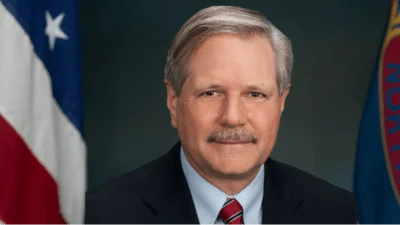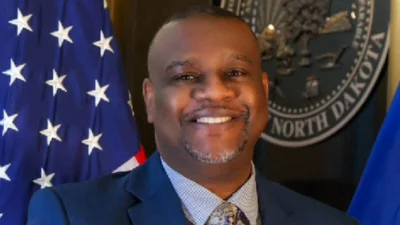Lucy Biggers | LinkedIn
Lucy Biggers | LinkedIn
A former social media content producer is reflecting on what she and thousands of other like-minded activists actually accomplished at the Dakota Access Pipeline protests in 2016, describing in hindsight their efforts as “a misplaced movement of idealistic people” that resulted in a “local ecological disaster”—over a pipeline that now provides reliable energy to a large region of the U.S.
Lucy Biggers worked at Now This News in New York City in her mid-20s, creating online content for the progressive-leaning organization’s social media channels and their sizable following.
In October 2016, Biggers saw a video featuring actress Shailene Woodley, who had received an award from the Environmental Media Association. The award was presented to Woodley based on her activism in opposition to the construction of the Dakota Access Pipeline, a 1,172-mile-long pipeline running from western North Dakota to southern Illinois.
The evening of the awards ceremony, Woodley was accompanied by members of the Standing Rock Sioux Tribe – whose reservation and water source, Lake Oahe, is located near the construction site – and in her acceptance speech, encouraged the audience to go to the area and protest the pipeline’s construction in person.
Within 24 hours of posting a montage of Woodley’s award speech, Biggers’ video was viewed over one million times, and by December, the viral post had been viewed 17 million times, according to Biggers.
Answering Woodley’s call, Biggers traveled to the protests in December 2016.
“It was such a viral moment, in the sense that all of a sudden, everybody cared about this topic. It kinds of reminds me of the George Floyd protests in 2020, where all of a sudden, this was the issue. When I was flying in, every single person on my plane was also going to the protests,” Biggers told Central ND News.
“There were military members that were all going and they had crowd-funded to go, because they thought they were going to stand up against the [North Dakota] state police when they were there. There were a ton of sustainability and climate activists and influencers that were also going who I was connected with, and it was all of a sudden this big momentum to go. It felt like everyone in the climate movement was descending on it at the same time.”
Biggers described a collegial and almost music festival-like atmosphere when she arrived at the Standing Rock protest camp.
“I never saw anything that was nefarious or necessarily illegal when I was there, everyone was already established in this site. There was this huge campsite of hundreds of tents and trailers and everything. It was very jovial, flags and cook tents, and everyone was so welcoming, and feeling like you’re connected by a cause. At the time, I was a young reporter and I was very taken with the vibes, I guess, and just feeling like we were doing something,” Biggers said.
“Although now, with hindsight and maturity, I don’t exactly know what we accomplished, other than kind of creating a festival there. Because at the end of the day, the pipeline still went through – as now I do believe it should have – and when the protests ended, there was a million pounds of garbage left. We ended up creating a local ecological disaster by going.”
At other times during the protests, clashes between protestors and law enforcement personnel ensued, resulting in numerous arrests and property damage by the time the protest site was cleared in February 2017, with the pipeline completed in April and operational the following month.
Eight years removed from the posting of her viral videos, Biggers, now 34, feels differently about her protest advocacy. Although, she said, she began to have doubts about the effectiveness of the protests as soon as six months after she visited them, and gradually began to change her point of view.
“Is that really the best thing to protest? Pipelines are actually better for the environment than putting these [fossil fuels] on trains. So, it was sort of a misplaced cause. I kind of felt that way, but I didn’t necessarily ever admit that to myself. Hindsight is 20/20,” Biggers said to Central ND News.
“Then, I think, now with so many years behind me, it’s easier to put my thoughts into focus and come up with why my opinions changed. I don’t think there was one specific moment where that was the light bulb moment, it was almost like the doubts were always there, and it just grew and grew and grew over time.”
Biggers spoke further about where her perspective on the subject stands now.
“My perspective today is what I would call much more realistic, and just grounded in the facts and reality of an energy system and climate change. I say this in my [article in The Free Press]: Yes, the climate is warming, but if we were to cut off access to affordable fossil fuels tomorrow, that would be thousands of times worse than what we’re seeing from climate change,” she said.
“I think we’re seeing this gradual warming of the planet that’s causing issues like sea level rise and more extreme heat, but we’re able to adapt to those things because we have fossil fuels, right? I live in Connecticut and I can heat my home in the winter and I can cool my home in the summer, because I have access to affordable energy. If I was no longer to have that affordable energy in the form of fossil fuels, we have two crises now: We have climate change, which is already happening, and then we don’t have affordable energy.”
In retrospect, Biggers felt the protests were “a misplaced movement of idealistic people who saw the world in very black-and-white thinking,” herself included.
She said she now realizes that having affordable energy produced domestically and transported safely within the U.S. provides many benefits and “outweighs the risk of the climate change that we’re seeing,” and added it was her hope that zero-carbon alternatives become more affordable and scalable for future use.
Biggers also provided advice for those, especially younger people, who may feel compelled to participate in another “viral movement” in the future.
“I am suspicious of anything that goes super-viral now and becomes a trendy movement, I am going to be suspicious of that. I think if it seems too simple and too black-and-white, then you don’t have all the information. And also understanding that social media and our algorithms, they are responding to what you like and you’re going to get fed things that have opinions you agree with, and that’s going to get you more likely to have black-and-white thinking,” Biggers said.
“For younger people who have less lived experience, they’re going to be more vulnerable. At this point in my life, I’m older, so I’m inoculated to it from life experience, where I’m going to be less passionate about any given topic and be more measured, and take my time to come up with a given opinion.”
Biggers advised younger people to take the time to do research and see multiple sides of an issue before taking a position on it.
“Even if your view doesn’t change, you may realize it’s more nuanced and more complicated, and maybe you realize it’s not necessarily worth protesting, but there are other ways you can make a change,” Biggers said.






 Alerts Sign-up
Alerts Sign-up